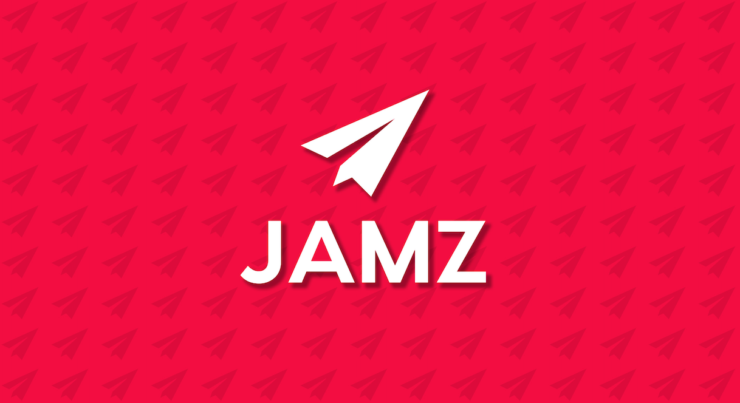SERVICE BELIEVES DRONES ARE THE SOLUTION TO HIGH DELIVERY EXPENSES FOR RURAL RESTAURANTS DURING THE PANDEMIC
New tech service JAMZ Delivery is a start-up founded by seven students from the University of Ottawa (U of O) and it is changing the way people order food.
The company aims to transform the food service industry with autonomous drones that can deliver food from rural restaurants to customers’ homes.
Last May, this group of students entered the Simon Nehme COVID-19 Design Competition where they were challenged to improve automated deliveries. The team won the competition and soon transformed their idea into a business.
Company founders, Mohammad Abu-Shaaban, Amro Ahmed, Zainab Badawi, Felipe Garcia-Salas Vidal, Piers Hancock, Logan Rodie, and Jake Steele, decided to focus on the introduction of drones to the rural Canadian restaurant market.
“After we placed first in this competition, we felt ready to try and help society with the concept of drone delivery,” said Abu-Shaaban.
“[Thanks to our] experience [at this competition] we realized the potential for drone delivery in the rural market for Canada.”
In 2020, many restaurants in Ontario were severely impacted by the COVID-19 lockdowns in part due to the commission these restaurants had to pay to third-party delivery companies.
Before the Ontario government placed a cap on food delivery fees in December, SkiptheDishes charged restaurants a 20 to 30 per cent commission depending on their location. And if a restaurant signed-up with DoorDash and required a large delivery radius, it had to switch to a “higher commission structure” which included distance-based pricing. This meant that, the more rural a restaurant the more it had to pay delivery commission.
Furthermore, a report from Restaurants Canada found 65 per cent of Canadian restaurants are operating “at a loss” and only “19 per cent are just breaking even.” On top of that, “48 per cent of [small and independent restaurants] expect to permanently close their establishment within six months if conditions don’t improve.”
As a result of the changing restaurant industry, JAMZ hopes that drones are the solution to high delivery expenses for rural restaurants. The operation of drones is less expensive than paying workers. Further, drones are a more efficient way to deliver food because they can fly directly from point ‘A’ to ‘B’. Also, drones are an eco-friendly delivery choice and they keep in line with no-contact delivery.
Amidst the pandemic, restaurants use no-contact delivery, which means that food is dropped-off on the individual’s doorstep and the delivery person does not hand the customer food directly. But the food still has to be handled by the delivery person. So, drones decrease the risk of contamination.
“At our core, we want to help restaurants stabilize their businesses,” said Garcia-Salas Vida. “We want to reduce delivery expenses and deliver food to customers who might live far away from the restaurant.”
Challenges and opportunities
Despite early success, every new company must climb steep hills. In particular, JAMZ Delivery is working to develop prototypes of drones that function in the winter.
“A big challenge that we face right now is that Canada’s winter impacts […] how well the drones fly,” said Hancock.
“Our big goal right now is to develop a large database of flight information so that we can successfully predict the chances for successful flights.”
Right now, the team is also working to develop strategies to communicate with their target market. They also want to develop a future system that allows customers to track the drone while it makes the delivery, explained Rodie.
However, all this planning means nothing if Transport Canada (TC) doesn’t approve of the drones. Hancock explained, TC will either give the team the ‘yes’ or ‘no’ to fly the drones. As a result, the team must demonstrate that they can fly their drones safely while following each rule and regulation set in place.
The U of O’s MakerLaunch Accelerator Program is helping set up the company for success even with the numerous challenges they face. The purpose of this program is to guide students and recent graduates through the process of starting their own technology companies.
“Being accepted into MakerLaunch was one of our biggest milestones,” said Garcis-Salas Vida.
“What is amazing about MakerLaunch is that it is an accelerator program. So, not only do we get access to financial resources, but we also get business resources from Ottawa’s community of entrepreneurs who are already established.”
Still, Hancock spoke about the stresses that come along with the establishment of a new business — but he reiterates that the team remains determined to have success.
“There are a lot of hurdles to jump over. But there is [also a] tremendous sense of accomplishment and team spirit as we overcome each of these hurdles.”





